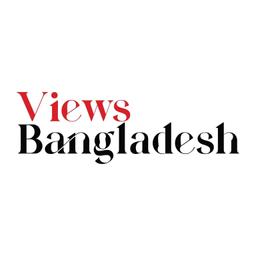Is July genocide trial possible at International Crimes Tribunal?

Adviser on Law, Justice and Parliamentary Affairs Dr Asif Nazrul said on Wednesday (August 14) that those responsible for July genocide, shooting students to death during the quota reform movement, could be prosecuted at the International Crimes Tribunal (ICT).
He said, "By the July genocide, we also mean the genocide committed during the first five days of August. We have already done a little research to try them at the International Crimes Tribunal."
Now, the question rises whether it is possible to hold the July genocide trial at ICT?
The International Crimes Tribunal Act was enacted on July 21 1973 to prosecute crimes such as genocide and rape committed during the liberation war of 1971. After the assassination of Bangabandhu in 1975, General Ziaur Rahman abolished this law. After the Awami League government came to power in 2009, the ICT was formed under the International Crimes Tribunal Act of 1973 on March 25, 2010 to try the war criminals of the 1971. The law was amended in 2009 before the formation of the tribunal and in 2013 after its formation. Later, on March 22, 2012, another tribunal named Tribunal-2 was constituted. On September 15, 2015, the two were merged into one tribunal.
Senior lawyer of the Supreme Court Barrister Manzil Morshed said, “According to the international criminal law (international criminal jurisprudence), if serious crimes against humanity such as genocide, murder, rape, gang rape, or arson are committed in the country at different times, they should be tried in the International Crimes Tribunal, keeping all the framework of domestic and international law in place.”
“Accordingly, any murder or genocide committed in this country can be tried in the International Crimes Tribunal of Bangladesh,” he added.
Supreme Court lawyer and constitutional expert Dr Shahdeen Malik said, “According to the Rome Charter, if the country in which the crime is committed is unable, unsuccessful and unwilling to organize the trial; and if any other country applies to the United Nations, these crimes can be tried in the international court.”
“However, Bangladesh took the initiative to try these crimes by forming its own tribunal. Bangladesh established the International Crimes Tribunal following the constitution. Bangladesh and Cambodia are the only countries in Southeast Asia that have formed tribunals for trying crimes against humanity,” he added.
The esteemed lawyer said, “The killings that took place during the student movement, which is called the July genocide, can also be tried in the International Crimes Tribunal. But it has to be proved that it was a genocide.”
Mentionable, a complaint was lodged against 10 people, including former Prime Minister Sheikh Hasina, with the International Criminal Tribunal for the investigation of crimes against humanity including murder, genocide, torture and other crimes committed during the student movement from July 15 to August 5. Lawyer Gazi MH Tamim filed the complaint on Wednesday (August 14).
Advocate Gazi MH Tamim filed the complaint with the International Criminal Tribunal's investigative agency on behalf of Bulbul Kabir, the father of Arif Ahmed Siam of Bagerhat who was killed in the quota reform movement.
In the petition, action has been requested against individuals as well as parties and organizations like Awami League, Jubo League and Chhatra League for the same crime.
Along with former Prime Minister Sheikh Hasina, others who have been charged are former Bridges Minister and Awami League General Secretary Obaidul Quader, former Home Minister Asaduzzaman Khan Kamal, former State Minister for Posts and Telecommunications Zunaid Ahmed Palak, and former State Minister for Information Mohammad Ali Arafat.
Former Inspector General of Police Chowdhury Abdullah Al Mamun, former DB Chief Harun Or Rashid, former Commissioner of Dhaka Metropolitan Police Habibur Rahman, and former Director General of RAB Md Harun or Rashid have also been accused in the complaint.
In addition to these accused, legal action has also been sought against Sheikh Hasina government ministers, state ministers, members of parliament and officials and members of the Dhaka Metropolitan Police without mentioning their names.


Leave A Comment
You need login first to leave a comment